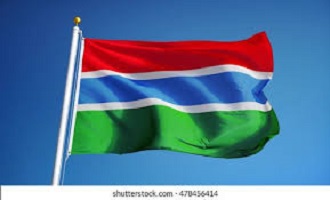By: Cherno Baba Jallow
At Independence In 1965, they called The Gambia an “improbable nation” because they weren’t sure she could survive on her own — too small, too young. But survive she did, and has been ever since.
It is always a good feeling knowing you have a homeland you could call your own. More than that, a homeland you live peacefully in. The Gambia has persevered in peace and stability. Many countries in the subregion have gone through internal upheavals blowing up their territorial sovereignties and social order, pillaging their infrastructure and uprooting their people.
Their people: they became refugees and stateless across International boundaries. I met with Sierra Leoneans, Liberians, Iraqis and others displaced from their own countries because of bad leadership and internal strife. They had lost hope in their countries. ‘‘I am not returning home; I am staying here,’’ a common theme ran through my interactions with these nationalities.
I knew I was an exile in America and couldn’t visit home. From 1996 to 2017, I couldn’t visit The Gambia because of the fear of one man: Yahya Jammeh, a vicious trampler of human rights and murderer of his own people. It is a terrible feeling knowing you are a wanted man in your own native land, and therefore, can’t visit and see your people. But then I always said to myself, ‘you will go home someday as long as the country remains intact and doesn’t plunge into a civil war.’
The Gambia came to the brink of a national crisis. The drums of war could be heard from the distant horizons. The tell-tale signs were there. If Jammeh had won in 2016, it would have triggered a seething cauldron of political despair, and before long, a march to debacle.
But sanity prevailed. Gambians, still availed of the peaceful routes to leadership change, finally summoned the courage to kick out their oppressive dictator. And the international community finally listened to our cries and came to our defence.
Independence Day celebrations aren’t just about a cheerful throwback to the past, when colonies broke free from the strangleholds of their mother countries, when the umbilical cords of colonialism finally got severed and buried by the shovelful. These celebrations are also about national progress, about how much nations have done to advance the public good for their citizenries and about how much these nations have done to right their past wrongs and change course for the better.
In 2016, Gambians restored democracy and constitutional order. And they didn’t resort to violent means. They did it peacefully. This is first-rate political maturity. On any day, and certainly, on one like today’s, Gambians should remember their ingenuity in removing their dictator without having to kill each other and cause undue destruction. They still kept their country intact.




